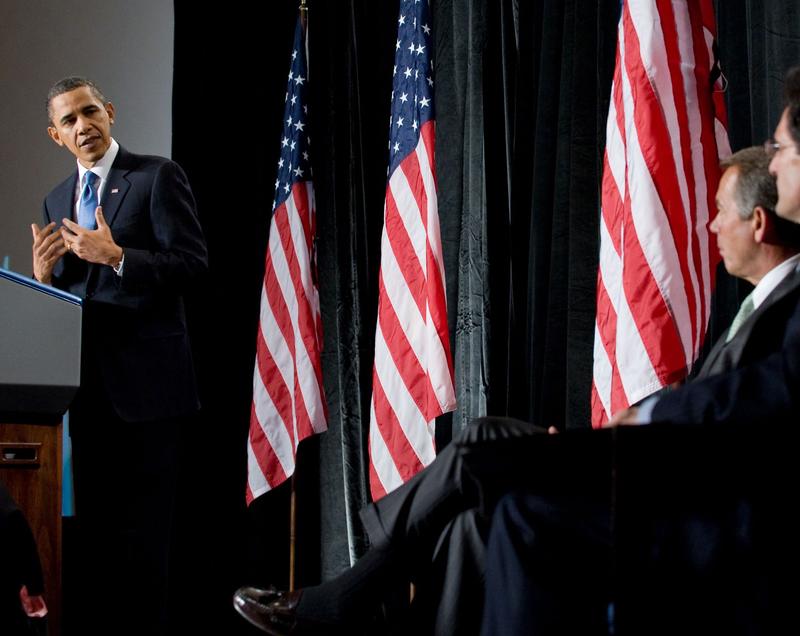After the Death of Osama bin Laden, Obama Calls for Unity. Will Anyone Listen?

President Obama drew a standing ovation when he mentioned the death of Osama bin Laden before a bipartisan dinner in Washington Monday night.
He paused on the meaning of the moment in Washington. “We were reminded again that there is a pride in what this nation stands for, and what we can achieve, that runs far deeper than party, far deeper than politics,” he said.
“It is my fervent hope that we can harness some of that unity and some of that pride to confront the many challenges that we still face,” Obama said.
The circumstances were new, but Obama’s call to confront challenges from our higher selves is vintage Obama. He first made his mark in American politics by calling for us to focus on what we share as Americans. He got to the White House, in part, on the appeal of his call for a new kind of Washington politics.
And as he’s launched his reelection campaign, he has tried to capture that spirit again, even while stuck in the confines the governing in a partisan capital.
“My biggest adversaries aren’t my political opponents,” the president told supporters at a fundraiser in Manhattan last week. “My biggest adversary is the cynicism that can be so corrosive when people stop believing in this idea of America. And what we’ve always been about is understanding that there’s nothing we can’t achieve if we’re working together.”
He went on, however, to acknowledge that the optimism of his inauguration has worn thin, even for his most enthusiastic cheerleaders.
And for his adversaries, going along with unity will last only as long as their interests are in line with the president’s. In other words, not that long.
After all, it was less than three months ago that the murderous attack on a Saturday morning meet-and-greet with Congressional constituents shocked us into asking if this would change the tone of the debate once and for all? Seeing one of their colleagues gunned down certainly shifted the tone for few days – and rearranged the seating chart at the State of the Union – but it wasn’t long before the real policy differences on federal spending priorities, social issues, and how much money government needs wore through those good intentions.
No doubt this moment, with the mixed emotions it stirs about the trauma of September 11, causes all Americans – politicians and voters alike – to pause and remember what it felt like when we were under attack. And for now, it focuses the gaze on Obama as our nation’s president, not a Democratic politician.
That was evident during a campaign stop in Iowa Tuesday morning, when former Minnesota Governor Tim Pawlenty did not criticize Obama in his stump speech, and when he did reference the president while answering questions, it was in reference to health care and the federal deficit.
And with the federal debt limit looming, there may be potential "to harness" a unity of purpose — as Obama said — to focus on the country’s spending and debt, but it’s not going to resemble political consensus in the least.